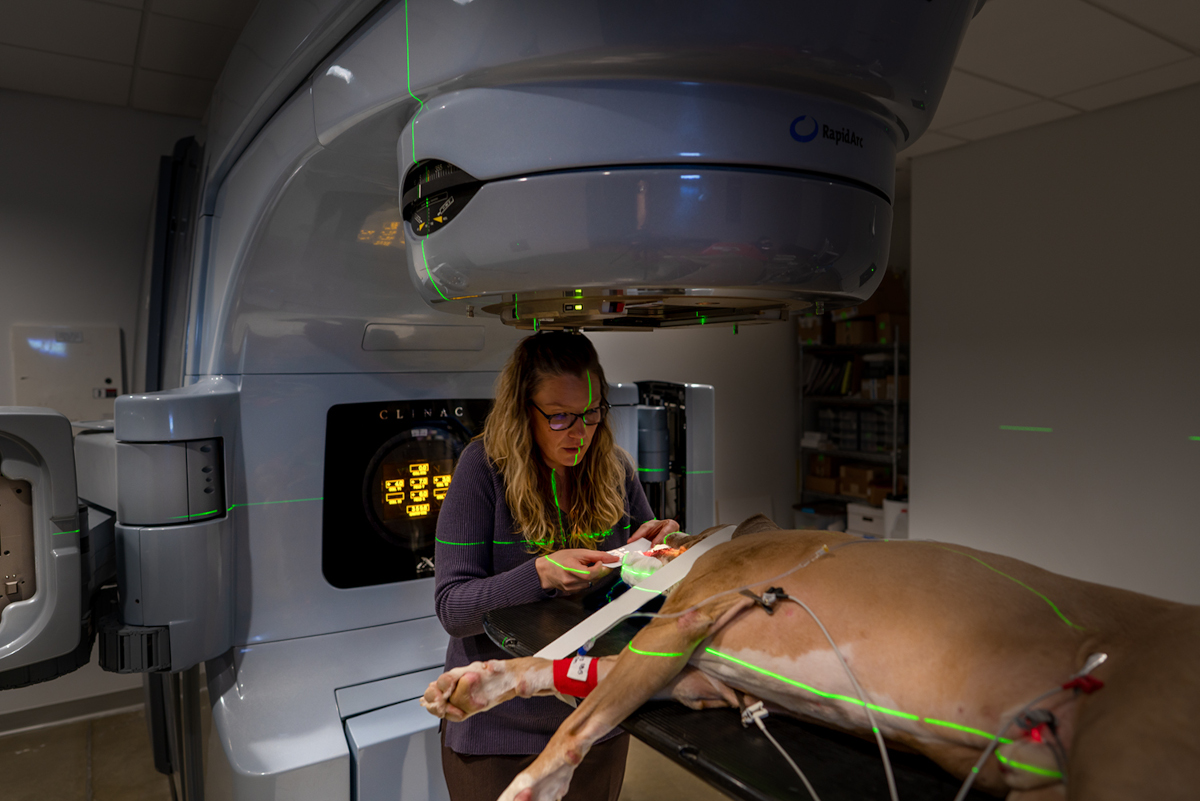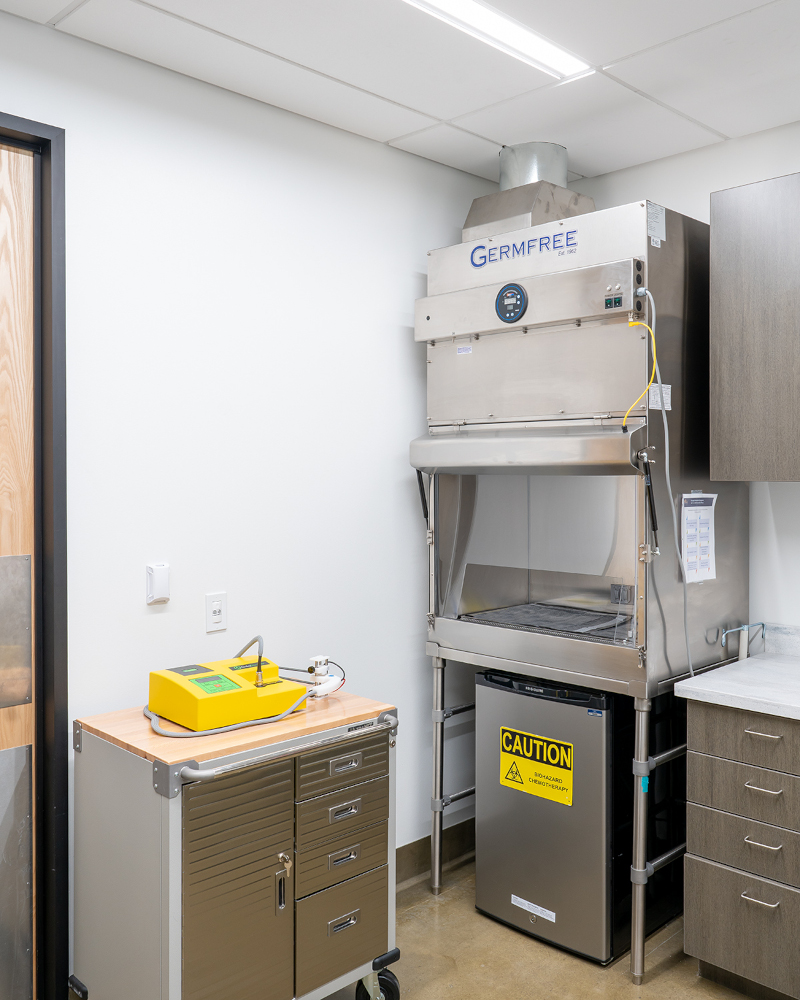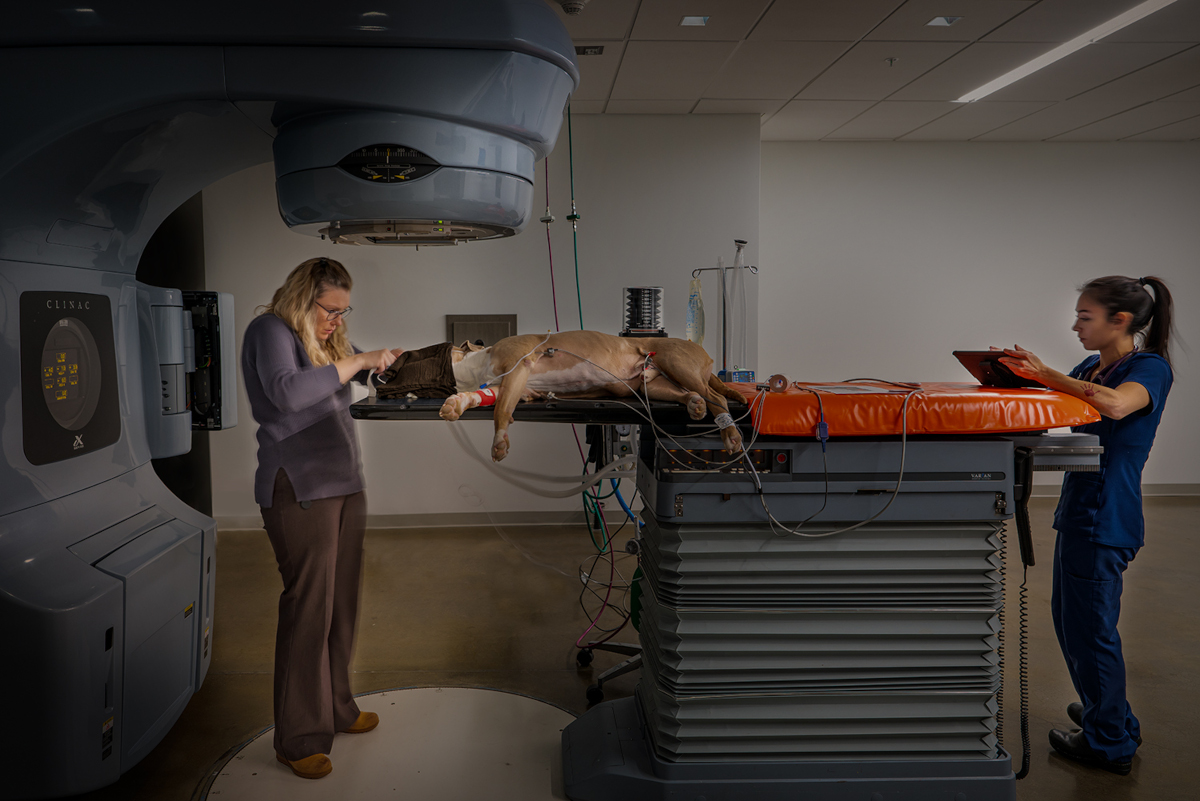Veterinary Oncology

The oncology service at Bridger Veterinary Specialists & Emergency offers comprehensive consultations, diagnostics, and treatment plans for animals with all types of cancer. We have the only board-certified oncologist in the state of Montana. Being a board-certified veterinary oncologist with formal residency training and expertise in the field of veterinary oncology means that your pet will have access to the best clinical knowledge and cancer treatment options available.
While it's sometimes easy to think of cancer as a human disease, it also affects animals. And, as with humans, the longer our pets live, the more likely it is that they may develop some type of cancer. In fact, 1-in-4 dogs and 1-in-5 cats will develop cancer. At Bridger Veterinary Specialists & Emergency, our goal is to provide owners with treatment options that are appropriate for the specific cancer type and its biological behavior. We always strive to use the most effective treatment which also provides the best possible quality of life. We make it a priority to understand owners' wishes for their pets, and thus help them to choose the most appropriate treatment, which sometimes includes the option of providing palliative (comfort) care.
Cancer treatment for pets is a specialized discipline and requires a different approach than that of other fields of veterinary medicine. Your family veterinarian may refer you to an oncologist if your pet has a full or suspected cancer diagnosis, if a diagnosis is elusive, or if your pet is not responding to standard treatments.
At Bridger Veterinary Specialists & Emergency, we practice according to the highest standards of medicine and ethics, and are committed to advancing the field of veterinary oncology in the region.

The Initial Oncology Visit
Consultation for pet owners with a pet diagnosed with cancer or suspected to have cancer will be by appointment only and include:
- Reviewing the history and medical record written by the referring veterinarian as well as a physical examination of the pet
- Recommendation on further diagnostic tests to obtain a definitive diagnosis if needed, and determine if the cancer has spread (metastasized)
- Discussion of treatment options including surgery, chemotherapy, electrochemotherapy, radiation therapy, immunotherapy, symptomatic treatment, or a combination of 2 or more treatment modalities
- Detailed explanation of possible side effects and expected effectiveness of each treatment option
- Determining the chemotherapy protocol or symptomatic treatment and administering the treatments per protocol
- Monitoring the patient during and after the conclusion of treatment
- Telephone or e-mail consultations to the referring veterinarians
Click here for additional information about your visit.
Radiation Therapy

Radiation Therapy is used to treat certain types of cancer. Depending on the type of cancer, this therapy may be used in addition to chemotherapy.
Conditions that may benefit from Radiation Therapy:
- Tumors in the skull (brain, nasal cavity, mouth)
- Tumors that cannot be surgically removed
- Tumors that cannot be completely removed during surgery
- Palliative treatment to reduce the pain of bone tumors and osteoarthritis
Consultation for pet owners with a pet diagnosed with cancer or suspected to have cancer will be by appointment only and include:
- Reviewing the history and medical record written by the referring veterinarian as well as a physical examination of the pet
- Recommendation on further diagnostic tests to obtain a definitive diagnosis if needed, and determine if the cancer has spread (metastasized)
- Discussion of treatment options including surgery, chemotherapy, electrochemotherapy, radiation therapy, immunotherapy, symptomatic treatment, or a combination of 2 or more treatment modalities
- Detailed explanation of possible side effects and expected effectiveness of each treatment option
- Determining the chemotherapy protocol or symptomatic treatment and administering the treatments per protocol
- Monitoring the patient during and after the conclusion of treatment
- Telephone or e-mail consultations to referring veterinarians
